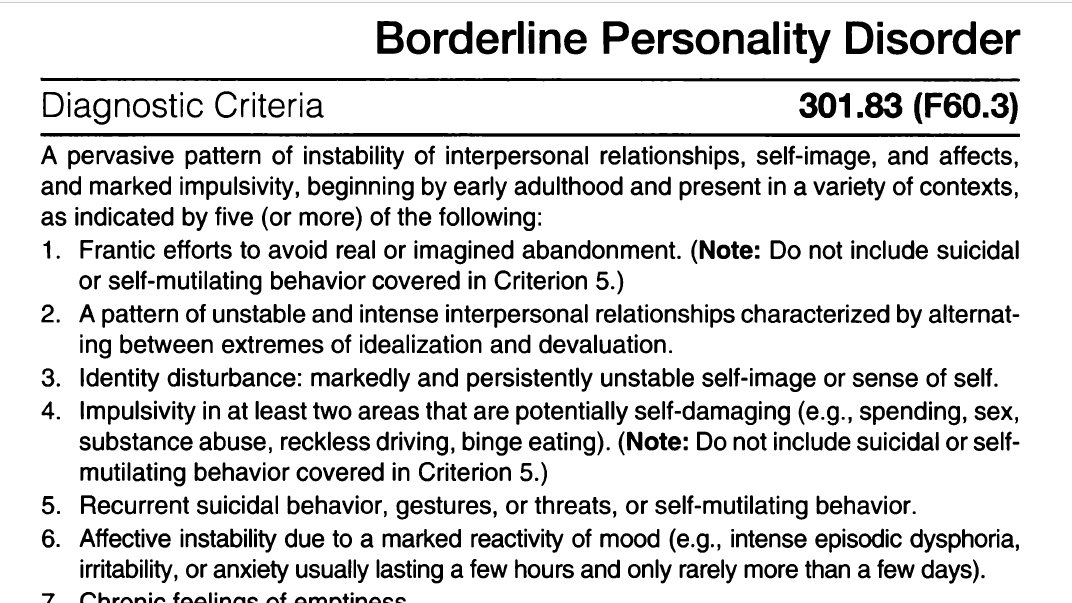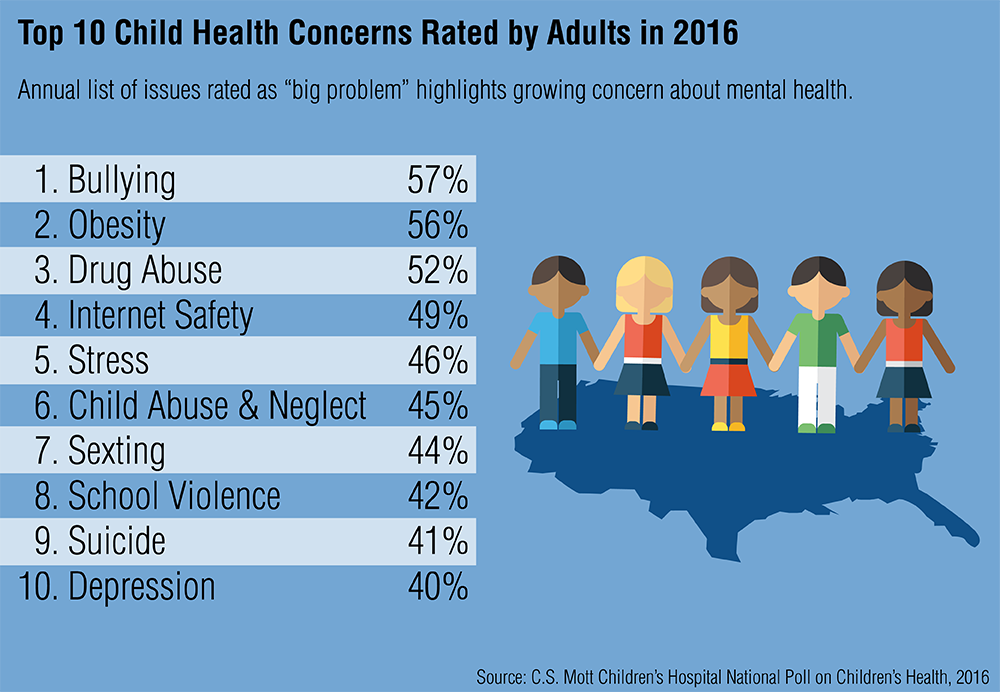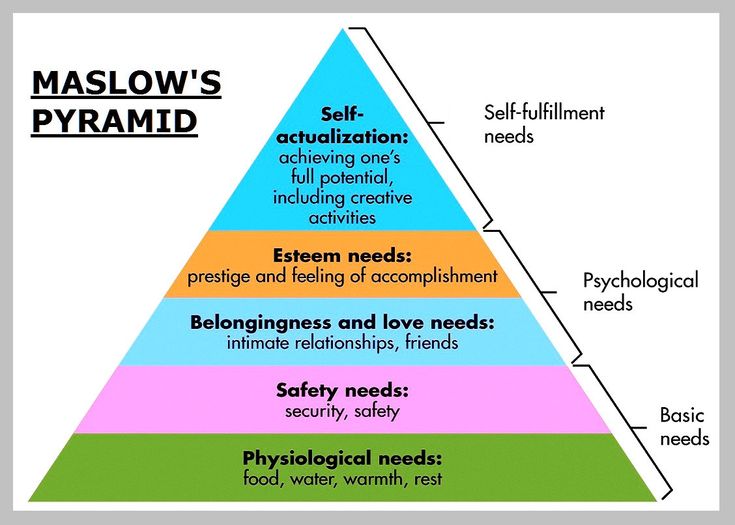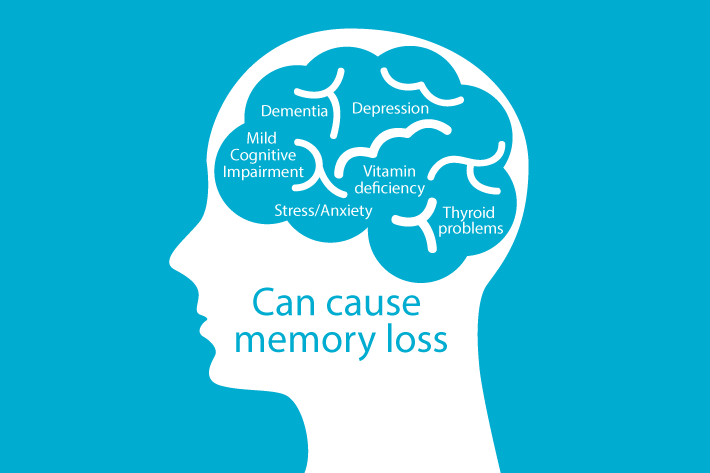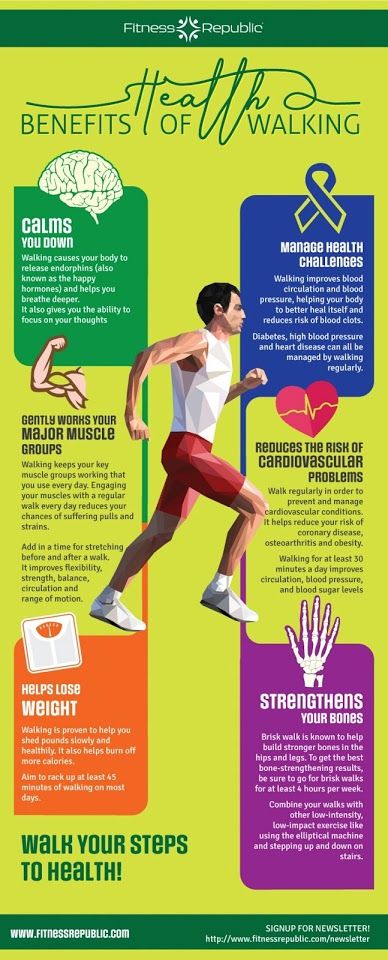Treatment for racing thoughts
7 tips to stop them
We include products we think are useful for our readers. If you buy through links on this page, we may earn a small commission. Here’s our process.
Racing thoughts are thoughts that come quickly, one after the other. They may relate to one subject or many different ones.
When a person has racing thoughts, their mind involuntarily digs up random thoughts and memories and moves rapidly from one to another.
The topics may have nothing to do with each other or may have links to each other. Random thoughts can affect a person’s ability to sleep or to focus on a single topic.
If racing thoughts move in a sequence, they can end in a worst-case scenario. A person may hear them as a voice they cannot ignore or as background noise in the brain.
Treating an underlying health condition or learning some coping strategies may help resolve these thoughts.
There is no single cause of racing thoughts. According to a 2020 article, racing thoughts may be a symptom of bipolar disorder, especially during a manic phase.
However, according to a 2019 article, various other factors can trigger racing thoughts. These include:
- anxiety
- depression
- panic disorders
- chronic stress
- the use of recreational drugs, such as amphetamine or cocaine
- some prescription drugs, such as dexamethasone
- medical conditions, such as stroke, multiple sclerosis, and Cushing’s disease
- a traumatic brain injury
Other conditions that may lead to racing thoughts include:
- obsessive-compulsive disorder (OCD)
- post-traumatic stress disorder (PTSD)
- attention deficit hyperactivity disorder (ADHD)
One older study suggests that when a person with depression experiences racing thoughts, they may be at a higher risk of thinking about suicide.
According to Mental Health America, racing thoughts may also signal the start of psychosis.
There are a variety of ways to control racing thoughts and reduce their occurrence.
1. Focus on now, not the future or the past
For some people, racing thoughts stem from something that has not happened and may never happen. Others focus on things that happened in the past, which they cannot change.
People who experience racing thoughts should try to focus on what is happening now. Saying to themselves, “I won’t worry about the past or the future, I’ll focus on what I can control,” is a good place to start.
2. Take deep breaths
The body’s natural panic response is to speed up the heart and breathing rate. This may happen when the mind begins racing.
MHA suggest that taking slow, deep breaths can reduce the body’s stress response and promote a feeling of calm, helping to quiet or stop racing thoughts.
The following strategy might help. Try:
- breathing in slowly while counting to five
- holding the breath for a few seconds
- breathing out while counting to five
A person can practice deep breathing anytime, without any specialized training.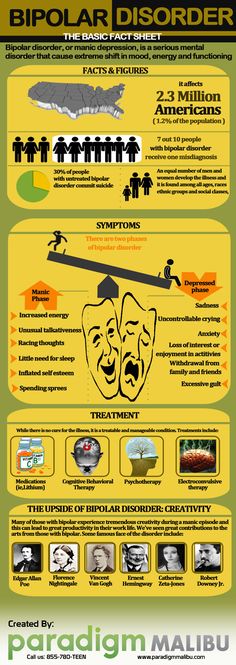
3. Think about other options
Racing thoughts often end up in a worst-case scenario, and it can be easy for someone to build up a sense of disaster.
This can lead to a vicious cycle of more anxiety and continued racing thoughts.
A person can try to counter this by:
- repeating to themselves that this worst-case scenario is not going to happen
- considering how likely it is that the worst-case will happen
- thinking about more desirable alternatives that could occur
Instead of, “I’ll get fired for that mistake,” change the thought to, “Everyone makes mistakes, and I’ll do what I can to make it right.”
4. Use mantras
According to an older article in the International Journal of Behavioral Consultation and Therapy, mantras, or positive self-statements, are simple words or phrases that a person can repeat to calm their mind. Some people find them useful in times of panic and racing thoughts.
Repeating phrases such as, “I can get through this,” or “It will be okay,” might help.
Mantras allow the mind to focus on one simple positive or encouraging thought. This turns the mind away from its racing thoughts.
5. Try distractions
MHA also indicate that distractions, such as a favorite hobby, such as a favorite hobby, especially a calming one, can quiet the mind and help a person focus on something other than racing thoughts.
Depending on a person’s preferences, options for reducing stress and finding distraction may include:
- using coloring books
- painting
- gardening
- cooking
- singing or playing an instrument
- going for a walk or other outdoor activity
- watch a movie or listen to some music
6. Exercise
Regular physical activity improves mental well-being and might be helpful during an episode of racing thoughts.
One 2016 study found that exercise improved symptoms of depression, while another found that just 15 minutes of exercise improved mood in college students.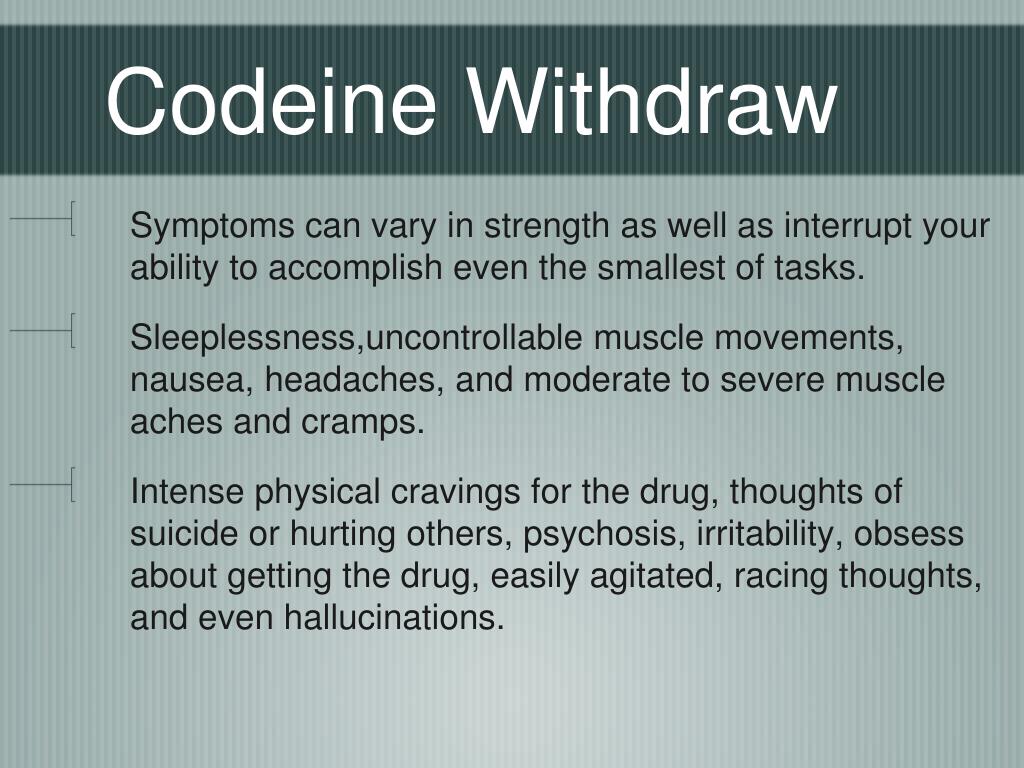
Current guidelines from the Centers for Disease Control and Prevention (CDC) recommend 150 minutes of moderate-intensity exercise per week for adults. The CDC also recommend muscle-strengthening exercises twice a week.
If racing thoughts start developing, walking, jogging, or similar activities may help settle the mind.
7. Inhale lavender essential oil
Lavender has a reputation for being calming, and some research supports this claim.
Some evidence suggests that inhaling lavender essential oil can calm the mind and quiet brain activity.
Lavender oil is available for purchase online.
Do not apply the oil to the skin without first diluting it with a carrier oil, such as almond or olive oil.
Although research suggests that essential oils may have some health benefits, it is important to remember that the Food and Drug Administration (FDA) does not monitor or regulate the purity or quality of these. A person should talk with a healthcare professional before using essential oils, and they should be sure to research the quality of a brand’s products.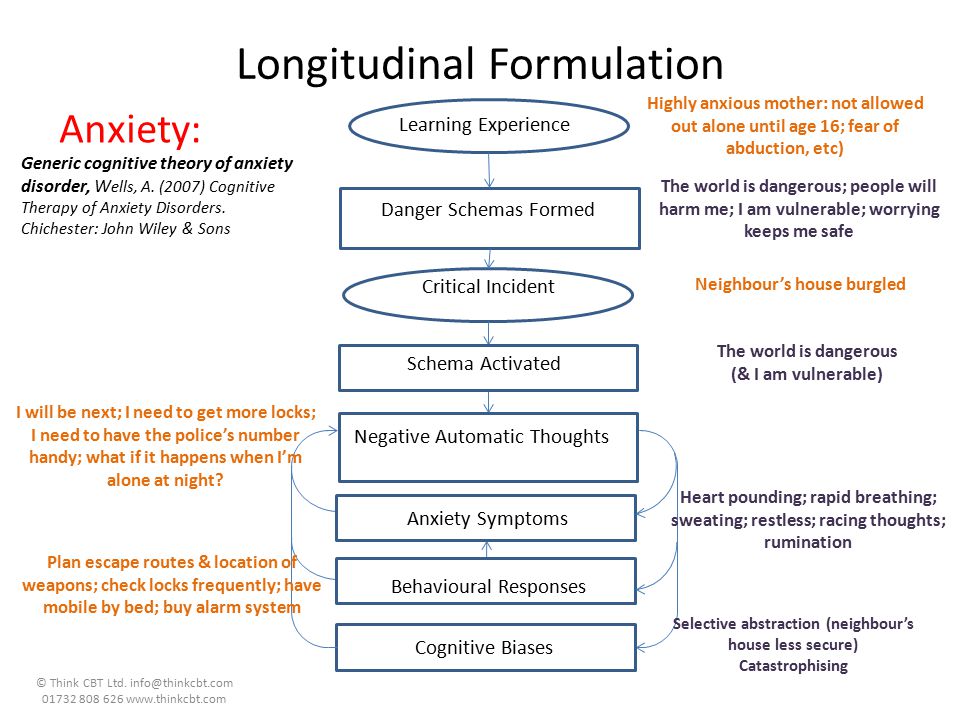 A person should always do a patch test before trying a new essential oil.
A person should always do a patch test before trying a new essential oil.
Many mental health conditions can cause racing thoughts, and it is essential to seek a doctor’s advice for diagnosis and treatment.
A doctor may use a questionnaire to assess the type of thoughts a person has and why they are happening.
A person should speak to a doctor if they experience:
- repeated episodes of racing thoughts
- a low mood and symptoms of depression lasting more than 2 weeks
- sleep problems
- symptoms of anxiety, ADHD, or other mental health issues
There is no single treatment for racing thoughts, but some options include:
- medication, psychotherapy, and other treatments for mood disorders and other mental health conditions
- reviewing medications that may trigger racing thoughts
A person may experience racing thoughts in response to a traumatic event, but they can also indicate an underlying health condition.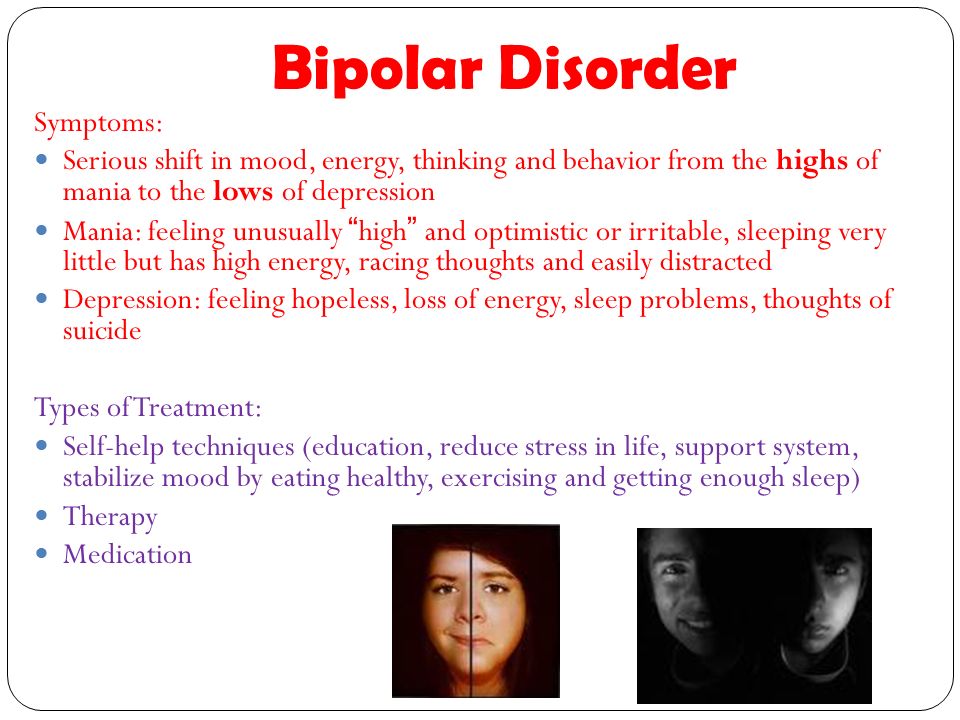
Many of the conditions that cause racing thoughts require professional guidance from a doctor or mental health practitioner for ongoing management.
A person should see a doctor if they experience racing thoughts without an apparent reason or have any other symptoms that last longer than 2 weeks.
These symptoms may indicate an underlying mental health problem that needs medical attention.
Racing Thoughts: Tips for Coping
Overview
Racing thoughts are fast moving and often repetitive thought patterns that can be overwhelming. They may focus on a single topic, or they may represent multiple different lines of thought. You may have racing thoughts about a financial issue or about an embarrassing moment or a phobia. These thoughts may also escalate.
Racing thoughts can increase your anxiety or feelings of unease and can disrupt your concentration.
When you have racing thoughts, you may feel like:
- Your mind is going a mile a minute.

- You aren’t able to slow down your thoughts.
- Your mind isn’t able to “shut off,” and you can’t fully relax.
- It’s difficult to focus on anything else.
- You keep thinking about a problem that has been blown out of proportion.
- You start catastrophizing, or thinking of worst-case scenarios.
Racing thoughts can result in insomnia. This happens when you struggle to fall asleep because you can’t slow down your thoughts at night. Keep reading to learn about strategies to help you calm your mind, longer-term treatment options, and what may be causing your racing thoughts.
Here are several steps you can take to manage or prevent racing thoughts if you’re having them right now:
1. Focus on breathing
Take several deep, careful breaths and focus on counting while inhaling and exhaling. This can force your mind to focus on something other than the racing thoughts. It can also have a calming effect on your central nervous system, which can reduce anxiety.
Keep reading: 5 easy ways to ease your mind »
2. Try a mantra
You can use a mantra, repeated when necessary, to take your mind off the racing thoughts. Even one like “Everything will be fine” can be very effective.
3. Eliminate stress before bed
If your racing thoughts typically occur at night when you’re trying to sleep, make changes to your routine before bed so that you can relax and sleep peacefully. Try to eliminate stress for at least two hours before sleep. You can meditate or practice gentle yoga, and read a relaxing book or take a bubble bath. Avoid all electronic screens and overly stimulating mental activity in those two hours before bed.
Longer term, therapy can help identify the cause of your racing thoughts. Cognitive behavioral therapy (CBT) may be particularly helpful. It can teach you coping mechanisms and techniques to manage these thoughts.
These techniques may include:
- doing deep-breathing exercises
- writing out thoughts on paper or in a diary
- using mantras to calm your mind down
- focusing only on the present and things you can control right now
Your doctor may also recommend medications to help manage any underlying conditions, especially if racing thoughts seem to accompany triggers like anxiety attacks or bipolar episodes. These medications may include:
These medications may include:
- antidepressants
- antianxiety medications
- antipsychotics
- mood stabilizers
Racing thoughts are a possible symptom of a number of different conditions. While it’s most common in anxiety, there are other conditions that can cause racing thoughts, too.
Anxiety
Anxiety is a common cause of racing thoughts. While racing thoughts are extremely common during an anxiety attack, they can also occur at any time. They may also precede or follow an anxiety attack.
Keep reading: The best anxiety apps of the year »
ADHD
Attention deficit hyperactivity disorder (ADHD) is characterized by a pattern of inattention or hyperactivity. Some people will describe their inattention as racing thoughts, especially when they are overwhelmed with external stimuli. More common in ADHD is wandering thoughts, where you struggle to focus on a single train of thought.
Learn more: What’s the difference between ADHD and ADD? »
Obsessive compulsive disorder
Obsessive compulsive disorder (OCD) is a mental health condition in which you experience obsessions or compulsions that are difficult to shake. These obsessions can take the form of racing thoughts, where you can’t stop what feels like an avalanche of thoughts on a particular subject. You may have a compulsion that soothes the thoughts, like washing your hands a certain number of times to stop racing thoughts caused by worrying about germs.
These obsessions can take the form of racing thoughts, where you can’t stop what feels like an avalanche of thoughts on a particular subject. You may have a compulsion that soothes the thoughts, like washing your hands a certain number of times to stop racing thoughts caused by worrying about germs.
Bipolar disorder
Bipolar disorder is an emotional disorder in which your emotions skyrocket to extreme emotional highs (manias) and plummet to severe depression. Racing thoughts most often occur during the mania part of a bipolar episode, though they can occur with depression, especially in cases of agitated depression.
Agitated depression
Agitated depression is an outdated term which refers to a severe subtype of depression. It’s characterized by feeling agitated instead of lethargic, the symptom that’s commonly associated with most types of depression. You may also feel restless, angry, and quick to react. Racing thoughts is more likely to affect those with agitated depression than other types of depression.
Medication side effect
Sometimes, medications may treat some symptoms of a condition but exacerbate or even cause others. Medications used to treat depression, anxiety, or bipolar disorder can sometimes cause agitated depression, which can then trigger racing thoughts.
If you start a new medication and start experiencing racing thoughts, call your doctor so you can try a new medication or adjust the dosage as soon as possible.
Learn more about depression medications and their side effects »
You should call your doctor or make an appointment with your therapist if you’re having racing thoughts on a regular basis and they’ve become disruptive or are preventing you from sleeping. You should make an appointment with a therapist as soon as possible to be evaluated for a mood or mental health disorder if you experience racing thoughts alongside any of the following:
- symptoms of depression
- strong irritability
- strong compulsions
- anxiety or panic attacks
- severe shifts in mood
Read more: 11 ways to stop a panic attack »
Only once you’re diagnosed can treatment start.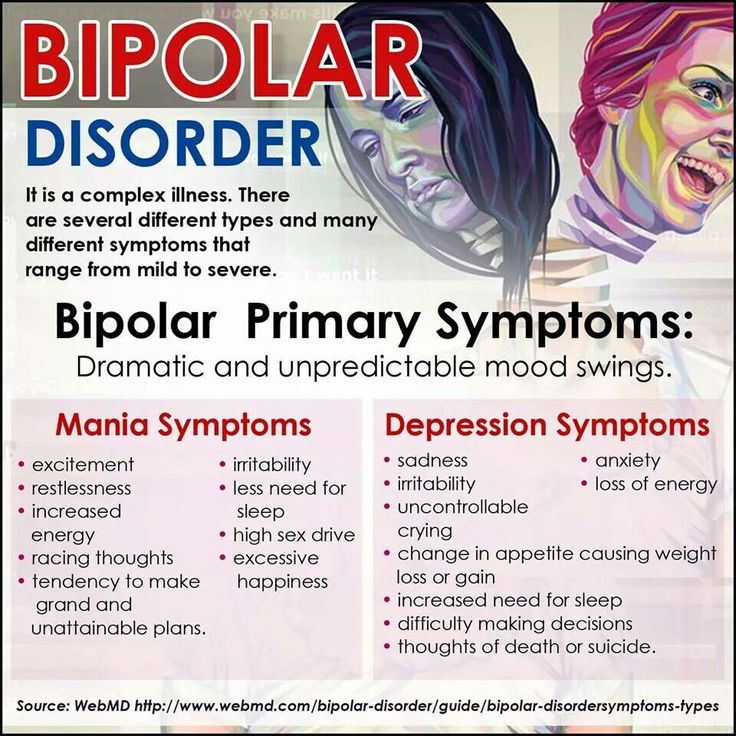 Just like other types of health conditions, mental health conditions are more easily treated when caught early.
Just like other types of health conditions, mental health conditions are more easily treated when caught early.
Coping Tips - The Health of Your Body
Contents
Overview
Thoughts run fast, and unstoppable thoughts are often repeated. They may focus on one topic or represent several different lines of thought. You may have thoughts of a financial problem, an embarrassing moment, or a phobia. These thoughts may also intensify.
Running thoughts can increase anxiety or discomfort and disturb your concentration.
When you have racing thoughts, you may feel like this:
- Your mind is running at a mile a minute.
- You cannot slow down your thoughts.
- Your mind cannot be "turned off" and you cannot completely relax.
- Difficulty concentrating on something else.
- You are constantly thinking about a multiplication problem.
- You begin to catastrophize or think of worst-case scenarios.
Thought racing can lead to insomnia. It happens when you're trying to sleep because you can't slow down your thoughts at night. Keep reading to learn about strategies to help calm your mind, long-term treatment options, and what might be triggering your thoughts.
It happens when you're trying to sleep because you can't slow down your thoughts at night. Keep reading to learn about strategies to help calm your mind, long-term treatment options, and what might be triggering your thoughts.
How to Stop the Mind Race
Here are a few steps you can take to control or prevent racing thoughts if you have them:
count on inhalation and exhalation. It can force your mind to focus on something other than running thoughts. It can also have a calming effect on your central nervous system, which can reduce anxiety.
Continue reading: 5 easy ways to calm your mind »
2. Try the mantra
You can use the mantra, repeating it as needed, to distract your mind from running thoughts. Even a phrase like "Everything will be fine" can be very effective.
3. De-Stress Before Sleeping
If your thoughts about running usually come at night when you're trying to sleep, change your sleep patterns so you can relax and sleep soundly. Try to relieve stress at least two hours before bed. You can meditate or do light yoga, read a relaxing book or bathe in bubbles. Avoid all electronic screens and excessive mental stimulation two hours before bedtime.
Try to relieve stress at least two hours before bed. You can meditate or do light yoga, read a relaxing book or bathe in bubbles. Avoid all electronic screens and excessive mental stimulation two hours before bedtime.
Therapy
Long-term therapy can help you determine the cause of your thoughts. Cognitive behavioral therapy (CBT) can be especially helpful. This can teach you how to address the mechanisms and methods of controlling these thoughts.
These methods may include:
- for deep breathing exercises
- writing down thoughts on paper or in a diary
- using mantras to calm the mind
- focusing only on the present and on things you can currently control
Remedies for racing thoughts
Your doctor may also recommend medication for any underlying condition, especially if racing thoughts seem to accompany triggers such as anxiety attacks or bipolar episodes. These medications may include:
- antidepressants
- anti-anxiety drugs
- neuroleptics
- mood stabilizers
What causes thought races?
Racing thoughts are a possible symptom of many different conditions. Although it is most common with anxiety, there are other conditions that can cause thought races.
Although it is most common with anxiety, there are other conditions that can cause thought races.
Anxiety
Anxiety is a common cause of thought races. Although it is extremely common to have racing thoughts during panic attacks, they can occur at any time. They may also precede or follow a panic attack.
Continue reading: Best Anxiety Apps of the Year »
Attention Deficit Disorder
Attention Deficit Hyperactivity Disorder (ADHD) is characterized by inattention or hyperactivity. Some describe their carelessness as racing thoughts, especially when they are overwhelmed by external stimuli. Wandering thoughts are more common in ADHD, where you struggle to focus on one stream of thoughts.
Learn more: What is the difference between ADHD and ADHD? »
Obsessive Compulsive Disorder
Obsessive Compulsive Disorder (OCD) is a mental health condition in which you experience obsessions or compulsions that are difficult to get rid of.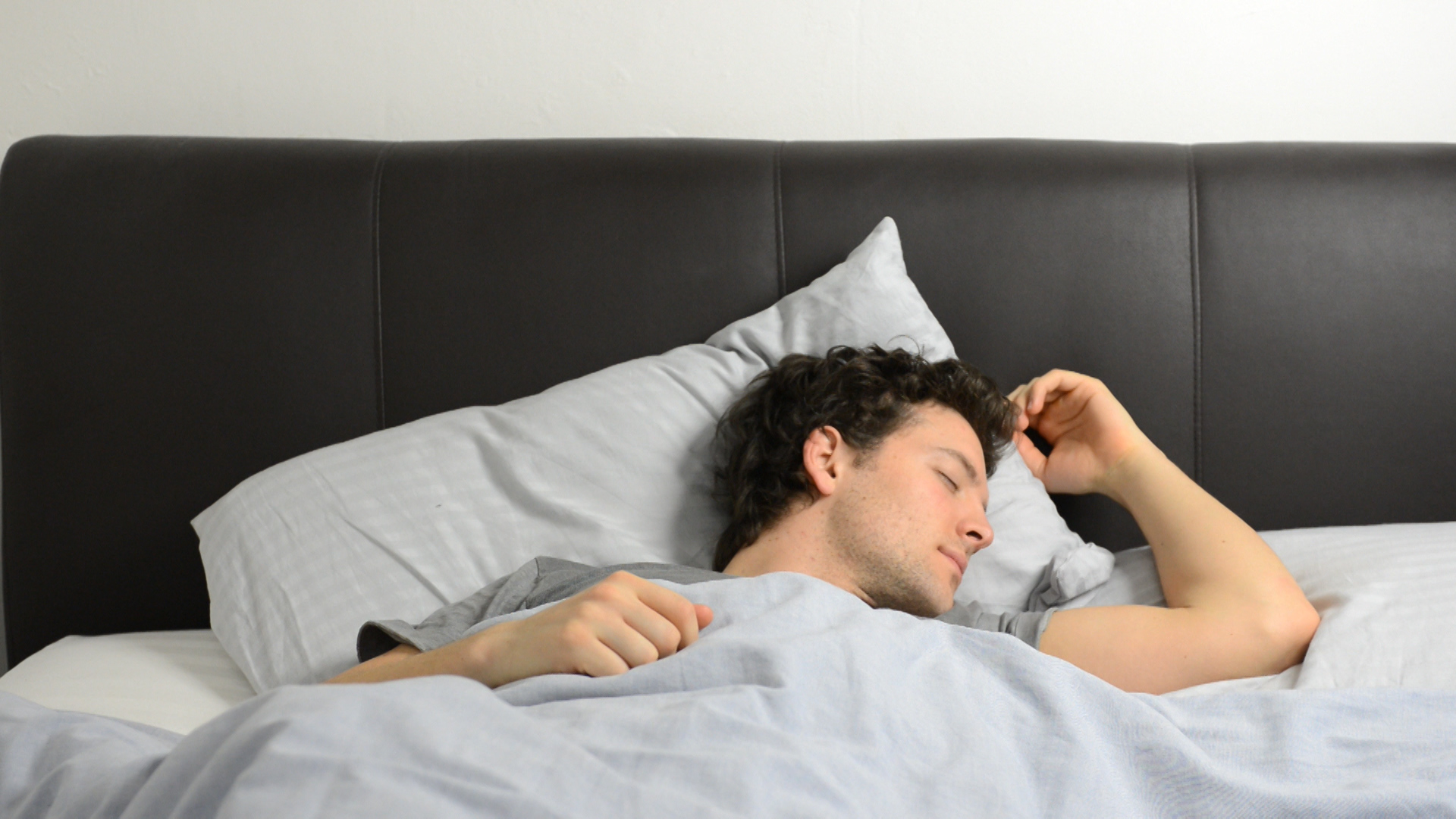 These obsessions can come in the form of thought races where you can't stop what seems like an avalanche of thoughts on a particular topic. You may have compulsions that calm your thoughts, such as washing your hands a certain number of times to stop the race of thoughts caused by microbial problems.
These obsessions can come in the form of thought races where you can't stop what seems like an avalanche of thoughts on a particular topic. You may have compulsions that calm your thoughts, such as washing your hands a certain number of times to stop the race of thoughts caused by microbial problems.
Bipolar disorder
Bipolar disorder is an emotional disorder in which your emotions reach extreme emotional peaks (mania) and become severely depressed. Thoughts of running most often occur during the manic part of a bipolar episode, although they can also occur during depression, especially in cases of anxious depression.
Anxiety depression
Convulsive depression is an obsolete term for a severe subtype of depression. It is characterized by feelings of restlessness instead of lethargy, a symptom commonly associated with most types of depression. You may also feel anxious, angry, and react quickly. Thoughts about racing are more common in people with anxiety depression than in other types of depression.
A side effect of a drug
Sometimes drugs can treat some symptoms of a disease but make them worse or even cause others. Medications used to treat depression, anxiety, or bipolar disorder can sometimes cause anxiety depression, which can then cause a thought rush.
If you start taking new medications and start having racing thoughts, call your doctor so you can try the new medication or adjust your dose as soon as possible.
Learn more about medications for depression and their side effects »
When to call your doctor
You should call your doctor or make an appointment with your doctor if you regularly experience thoughts that distract or interfere with your sleep. You should make an appointment with a therapist as soon as possible to evaluate his or her mood or mental health disorder if you experience racing thoughts with any of the following:
- symptoms of depression
- severe irritability
- severe compulsion
- anxiety or panic attacks
- severe mood swings
Read more: 11 ways to stop panic attacks »
Only after diagnosis can treatment begin. Like other types of illness, mental disorders are easier to treat if caught early.
Like other types of illness, mental disorders are easier to treat if caught early.
coping tips - health for your body
contents
Overview
Thoughts run fast, and unstoppable thoughts are often repeated. They may focus on one topic or represent several different lines of thought. You may have thoughts of a financial problem, an embarrassing moment, or a phobia. These thoughts may also intensify.
Running thoughts can increase anxiety or discomfort and disturb your concentration.
When you have racing thoughts, you may feel like this:
- Your mind runs at a mile a minute.
- You cannot slow down your thoughts.
- Your mind cannot be "turned off" and you cannot completely relax.
- Difficulty concentrating on something else.
- You are constantly thinking about a multiplication problem.
- You begin to catastrophize or think of worst-case scenarios.
Thought racing can lead to insomnia. It happens when you're trying to sleep because you can't slow down your thoughts at night. Keep reading to learn about strategies to help calm your mind, long-term treatment options, and what might be triggering your thoughts.
It happens when you're trying to sleep because you can't slow down your thoughts at night. Keep reading to learn about strategies to help calm your mind, long-term treatment options, and what might be triggering your thoughts.
How to Stop the Mind Race
Here are a few steps you can take to control or prevent racing thoughts if you have them:
count on inhalation and exhalation. It can force your mind to focus on something other than running thoughts. It can also have a calming effect on your central nervous system, which can reduce anxiety.
Continue reading: 5 easy ways to calm your mind »
2. Try the mantra
You can use the mantra, repeating it as needed, to distract your mind from running thoughts. Even a phrase like "Everything will be fine" can be very effective.
3. De-Stress Before Sleeping
If your thoughts about running usually come at night when you're trying to sleep, change your sleep patterns so you can relax and sleep soundly. Try to relieve stress at least two hours before bed. You can meditate or do light yoga, read a relaxing book or bathe in bubbles. Avoid all electronic screens and excessive mental stimulation two hours before bedtime.
Try to relieve stress at least two hours before bed. You can meditate or do light yoga, read a relaxing book or bathe in bubbles. Avoid all electronic screens and excessive mental stimulation two hours before bedtime.
Therapy
Long-term therapy can help you determine the cause of your thoughts. Cognitive behavioral therapy (CBT) can be especially helpful. This can teach you how to address the mechanisms and methods of controlling these thoughts.
These methods may include:
- for deep breathing exercises
- writing down thoughts on paper or in a diary
- using mantras to calm the mind
- focusing only on the present and on things you can currently control
Remedies for racing thoughts
Your doctor may also recommend medication for any underlying condition, especially if racing thoughts seem to accompany triggers such as anxiety attacks or bipolar episodes. These medications may include:
- antidepressants
- anti-anxiety drugs
- neuroleptics
- mood stabilizers
What causes thought races?
Racing thoughts are a possible symptom of many different conditions. Although it is most common with anxiety, there are other conditions that can cause thought races.
Although it is most common with anxiety, there are other conditions that can cause thought races.
Anxiety
Anxiety is a common cause of thought races. Although it is extremely common to have racing thoughts during panic attacks, they can occur at any time. They may also precede or follow a panic attack.
Continue reading: Best Anxiety Apps of the Year »
Attention Deficit Disorder
Attention Deficit Hyperactivity Disorder (ADHD) is characterized by inattention or hyperactivity. Some describe their carelessness as racing thoughts, especially when they are overwhelmed by external stimuli. Wandering thoughts are more common in ADHD, where you struggle to focus on one stream of thoughts.
Learn more: What is the difference between ADHD and ADHD? »
Obsessive Compulsive Disorder
Obsessive Compulsive Disorder (OCD) is a mental health condition in which you experience obsessions or compulsions that are difficult to get rid of. These obsessions can come in the form of thought races where you can't stop what seems like an avalanche of thoughts on a particular topic. You may have compulsions that calm your thoughts, such as washing your hands a certain number of times to stop the race of thoughts caused by microbial problems.
These obsessions can come in the form of thought races where you can't stop what seems like an avalanche of thoughts on a particular topic. You may have compulsions that calm your thoughts, such as washing your hands a certain number of times to stop the race of thoughts caused by microbial problems.
Bipolar disorder
Bipolar disorder is an emotional disorder in which your emotions reach extreme emotional peaks (mania) and become severely depressed. Thoughts of running most often occur during the manic part of a bipolar episode, although they can also occur during depression, especially in cases of anxious depression.
Anxiety depression
Convulsive depression is an obsolete term for a severe subtype of depression. It is characterized by feelings of restlessness instead of lethargy, a symptom commonly associated with most types of depression. You may also feel anxious, angry, and react quickly. Thoughts about racing are more common in people with anxiety depression than in other types of depression.

